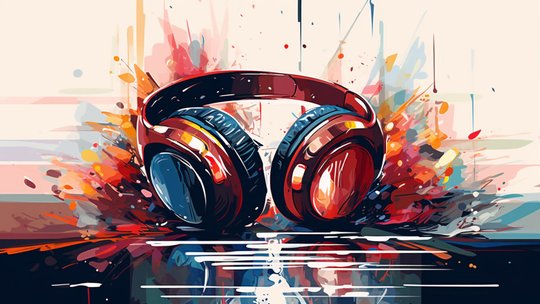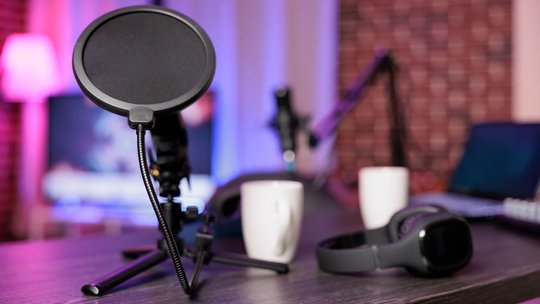Blog
Solo Podcasting: Ideas, Tips, Guides and Examples
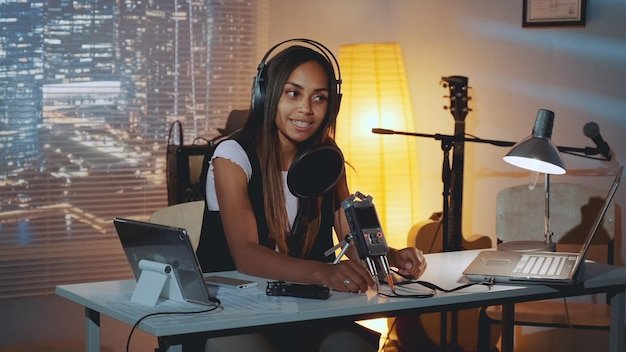
Published 7/28/2024 by Babalola Alabi
PodcastingRegardless of your grand podcast ideas, you don’t always need a co-host to start a podcast. While many successful ones feature multiple hosts or guests, you can choose to fly solo and still succeed in multiple ways. Solo podcasting offers a unique and intimate platform for individuals to connect with their audience on a deeper level when done appropriately.
So, what is your podcast topic idea and how can you make it a reality without needing another person?
In this article, we'll discuss everything you need to know about solo podcasting, how it works, and why you should choose it. We’ll also discuss some of the best solo podcasts you can get inspiration from and the best practices to start a solo podcast.
What is a Solo Podcast?
A solo podcast is a one-person podcast show in which a single individual hosts and produces everything. Oftentimes, it is a personal podcast in which research, scripting, recording, editing, and publishing are usually done by the same person. Most solo podcasters use the medium to share their knowledge, insights, or opinions on topics in their niche and sometimes invite guests for special episodes.
Why should you Choose Solo Podcasting?
Solo podcasting comes with some benefits and downsides. As a result, it is important to weigh both options before deciding if the format is right for you.
Advantages of Solo Podcasting
- Skill development: Handling all aspects of podcasting, from scripting to editing, allows you to develop a broad range of skills.
- Creative control: Solo podcasting allows you to shape your show according to your vision. The content, format, and style of the podcast are all controlled and decided by you.
- Flexibility: The flexible nature of solo podcasts makes you integrate podcasting into your lifestyle easily. There’s no need to coordinate with co-hosts or guests.
- Personal connection: As a solo podcaster, you have a unique voice and style that resonates with your audience and can help you establish a loyal fanbase.
Limitations
- Energy and time-consuming: Being a solo podcaster is not an easy task. It requires a significant time commitment and energy to maintain a regular production schedule.
- Limited interaction: Without a co-host or guest, your podcast might miss out on the dynamic interactions and conversations that could make the show lively.
- Creative burnout: Coming up with fresh ideas every time is not an easy task. Without someone to bounce ideas off, it can be difficult to maintain inspiration and motivation.
How to Create the Best Solo Podcast
Like every other content format, podcasting is more of connecting with your audience on a personal level than randomly creating content for them. And to achieve this, you need to have a well-detailed and focused podcast structure. Here’s your ultimate guide to creating a solo podcast:
1. Pick a niche or area of focus for your podcast
With over 5 million podcasts out there, the best way to be unique is by doing unique things! Choose a topic you're passionate about, knowledgeable in, and most importantly, a topic you love to talk about every time without getting bored or tired. Remember you’ll be doing the talking and you need the fuel to be able to continue consistently. Study and research your target audience to understand and discover what interests them. Extend your research to other solo podcasts doing well in your chosen niche to see how they do it.
2. Define your podcast format and structure
- “How do you want your podcast to start”?
- “What impression do you want people to have about your podcast”?
- “How do you aim to dispense information on the podcast”?
- “What is your storytelling format”?
- “What music, sound effects, or features will you need for the podcast”?
- “How long should a podcast episode last”?
These are some of the important questions you need to answer after deciding your topic and subject of discussion. Start planning! Draft out podcast episode ideas and some bullet points from the start. Get a journal to write down whatever idea comes to your mind and implement them carefully.
3. Get the right podcast equipment
Since it’s a solo podcast, budgeting heavily for podcast equipment is not necessary. However, you need to get the right podcast equipment to improve your content quality.
For a solo podcast, you need a quality microphone, laptop or smartphone, editing software, and headphone(s). If you’re starting a solo video podcast, add an affordable quality camera to your purchase list.
Pro Tip: Check out our guide on choosing the right podcast equipment to guide you accordingly
4. Setup your podcast studio
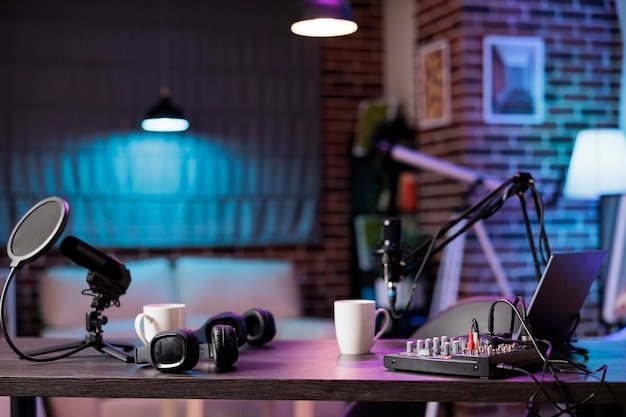
Your podcast studio is another important criterion for producing quality content. Choose a quiet environment to record your podcast. Ensure the acoustics are favorable too. Use foam panels, blankets, or soundproof curtains to reduce noise. Placing rugs on the floor and bookshelves against the wall can also help to reduce echo and maintain a balanced audio quality. If you’re proposing to start a video solo podcast, add some amazing aesthetics to your studio to make the video look professional and appealing to the eye.
5. Record and edit your podcast
Now that you have your set up, equipment, and your podcast content, it’s time to record. However, you need to conduct a sound check to ensure your microphone and recording software are working correctly. Speak clearly and maintain a consistent pace while speaking. Take breaks and avoid “uhms” and “ahs” as much as you can.
While editing, remove long pauses, mistakes, and background noises. Add royalty-free music and special features like fade in and out for a professional touch and to smoothly transition between podcast segments.
6. Publish your content
Publishing your podcast is an important aspect that should be done carefully. It’s more than just choosing a platform and submitting your podcast to directories. Other important things you need to do include the following:
- Design an eye-catching cover for your podcast
- Provide a summary, key point, and show note for each episode.
- Add relevant keywords to your summaries, and other written content.
- Add numbers to your episodes accordingly. Don’t use overly generic, long, or non-descriptive names.
7. Promote and share your content
You’re still not done yet! Publishing your content is not enough to drive traffic and engagement to your podcast. You need to repurpose your content and share it on other platforms to drive more engagement. AI tools like SoundMadeSeen can help you repurpose your content in different formats for different platforms to share with your audience. With SoundMadeSeen, you can create TikTok videos, YouTube Shorts and Instagram reels and also analyze your videos to create written content like blog posts, social media captions, and podcast descriptions.
Pro Tip: Check out our ultimate guide to starting a podcast to get more information.
5 Solo Podcast Ideas to Get You Started
Solo podcasting is an increasing and thriving space for podcasters like you. It’s all about sharing your passion and talking about what the audience wishes to hear or know about at a particular time. Here are 5 podcast ideas to get you started on your journey:
1. Expertise
Are you a STEM professional, dog trainer, influencer, or yoga instructor? You can use your podcast to share your knowledge and insights with the world. Focus on specific topics within your field, or provide more general advice. As your podcast grows, you can add premium features like consultations and online courses for your audience to buy from you.
2. Reviews
If you love food, music or movies, this is for you! Choose a movie and give reviews on it or talk about a new song that just got released by a Hollywood artist. You can also share your personal experience on other events like an experience at a restaurant etc.
3. Pep Talks
Every day, you can decide to drop nuggets of encouragement, advice and wisdom for your audience to learn from and keep them going in their journeys and respective works. It’s as simple as hopping on your microphone, recording your voice for 5-15 minutes and publishing it.
4. Stories
Use solo podcasts to narrate and share stories. It could be stories from your personal experiences, things that happened to you during the day or the course of the week, or an event that happened to your close friend.
5. Investigations
This is another simple solo podcast idea where you pick an event that happened and share the results you got from your investigations with your audience. It could be the murder or assassination of a well-known politician or some secrets to the success of a huge business.
Top 5 Solo Podcasts to Learn From
There are inspirations for a one-person podcast everywhere and we’ve collated some of the best out there.
1. Criminal
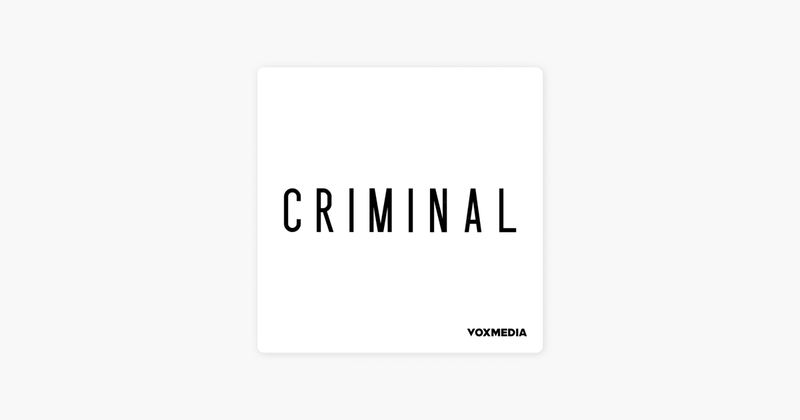
Host: Phoebe Judge
Genre: True Crime
Known for her captivating voice and great storytelling, Phoebe Judge is the host of the classic true-crime podcast, Criminal. It covers many true crime stories, including investigations, mysteries, wrongful convictions, and focuses on the concept of "people who've done wrong, been wronged”. Phoebe’s storytelling and podcasting skills are the major highlights of this podcast as she creates a thoughtful and almost meditative atmosphere even while dealing with the darkest subjects.
2. Reflections of History

Host: Jon Meacham
Genre: History and Education
Reflections of History is a podcast hosted by Jon Meacham. Jon is a Pulitzer Prize-winning historian and bestselling author. His insightful commentary on American history and politics has brought him to the limelight and his solo podcast discusses specific historical anniversaries daily and the significant events that happened on that particular date in history. Meacham uses his expertise to analyze the event's historical context, discuss its impact on the world, and explore its continuing relevance in today's society.
3. Financial Feminist

Host: Tori Dunla
Genre: Finance (Personal)
In her podcast “Financial Feminist”, Tori tackles financial topics for women aimed at guiding them toward achieving financial security and independence. Her engaging personality and clear explanations should be noted as she gives practical financial advice from a woman’s perspective. Tori also incorporates interviews with financial experts and inspiring stories from women on their financial journeys.
4. The Daily Pep

Host: Meg Kissack
Genre: Empowerment, Motivation
Speaking of a daily podcast that lasts for just 3-5 minutes, The Daily Pep is the perfect example. It is hosted by Meg Kissack, a self-described "rebel rouser", coach, and writer. In her podcast, Meg offers practical tips, encouragement, and inspiration to help listeners overcome challenges and stay motivated in pursuit of their goals.
5. Philosophize This!
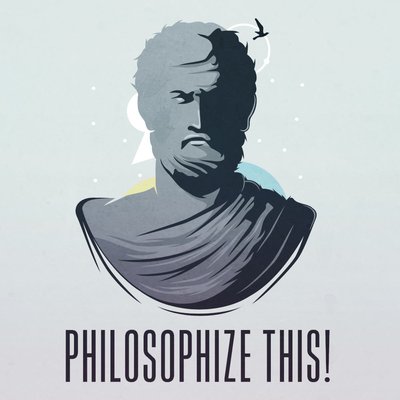
Host: Stephen West
Genre: Philosophy
Philosophize This! is hosted by philosopher and writer Stephen West. In his podcast, Stephen guides his listeners through the history of Western philosophy. He uses a conversational tone and adds humor with in-depth analysis to make philosophical concepts clearer and easier to understand for the listeners.
Conclusion
Solo podcasting offers a powerful platform to share your knowledge and connect with listeners on a deep level. Although there is a significant shift to guest podcasting, solo podcasting is still thriving and allows for a focused exploration of your chosen niche. With a well-detailed structure and plan, you can start one of the best solo podcasts out there.
Don’t be scared to try it. Enjoy the journey, explore more, and learn from your mistakes.
Happy Podcasting!!
FAQs
How long should a solo podcast be?
The average podcast length is 30-40 minutes. However, there is no specific length for the duration your solo podcast should last. It depends on your niche, your style, and the amount of information you’re dispensing.
Is a solo podcast a good idea?
Yes, having a solo podcast is a good idea in some cases. For example, if you’re looking to share your technical knowledge on a subject, then you can use a solo podcast. However, there are other factors that determine if a solo podcast is the ideal type for you like your commitment, communication style, and your ability to retain your audience all alone.
Start creating for free
Turn your podcast, audiobook or talk into sharable video and text content
Try it today
